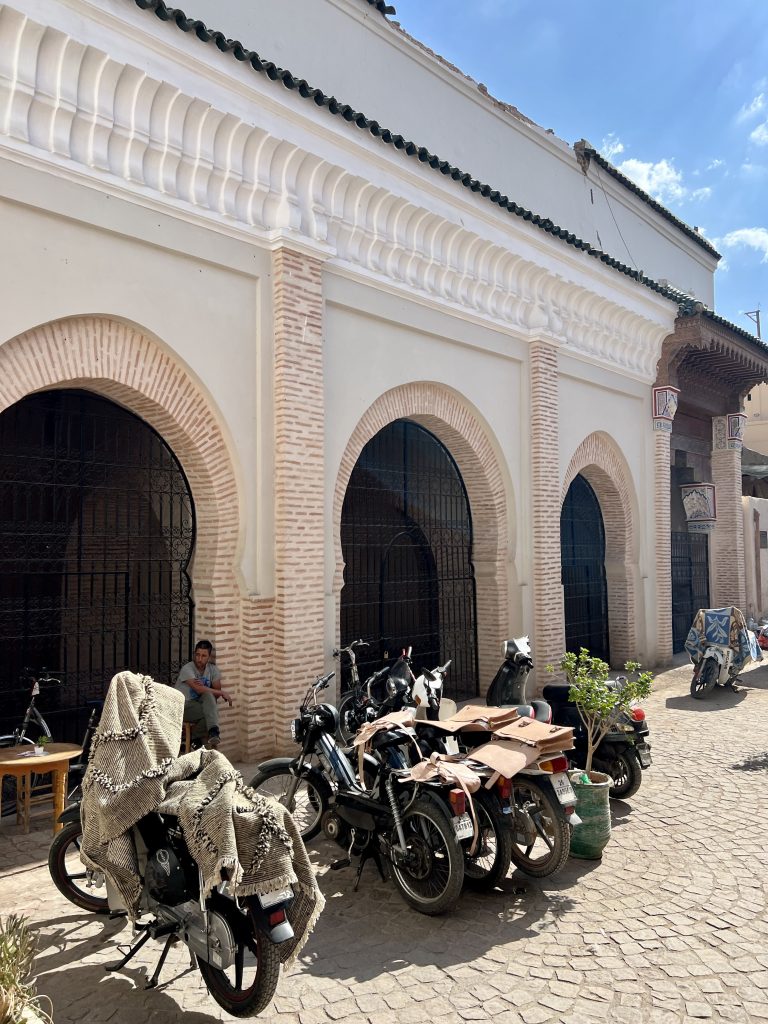
Since we were not sure if the show would be canceled or not, but largely due to our own commitment and love for Morocco, Zoom Vacations made the decision to come to Marrakech anyway. It was not an easy decision, because we were not sure if we would only be adding to the chaos that may already be there, or if we could be of assistance. Airports were open, and reports from our friends on the ground were that things in Marrakesh itself were not as bad as what was being portrayed in the news.
Once in Morocco, we discovered that the travel show had indeed been canceled. However, once here, it became very apparent that our decision to come was the right one. Many members of the travel community, including ourselves, banded together and went to a local warehouse where we bought food, blankets, and other supplies for the people most affected by the earthquake in the Atlas Mountains. We then spent an afternoon fundraising and discussing the future of tourism in Morocco, as well as the impact that tourism makes worldwide.
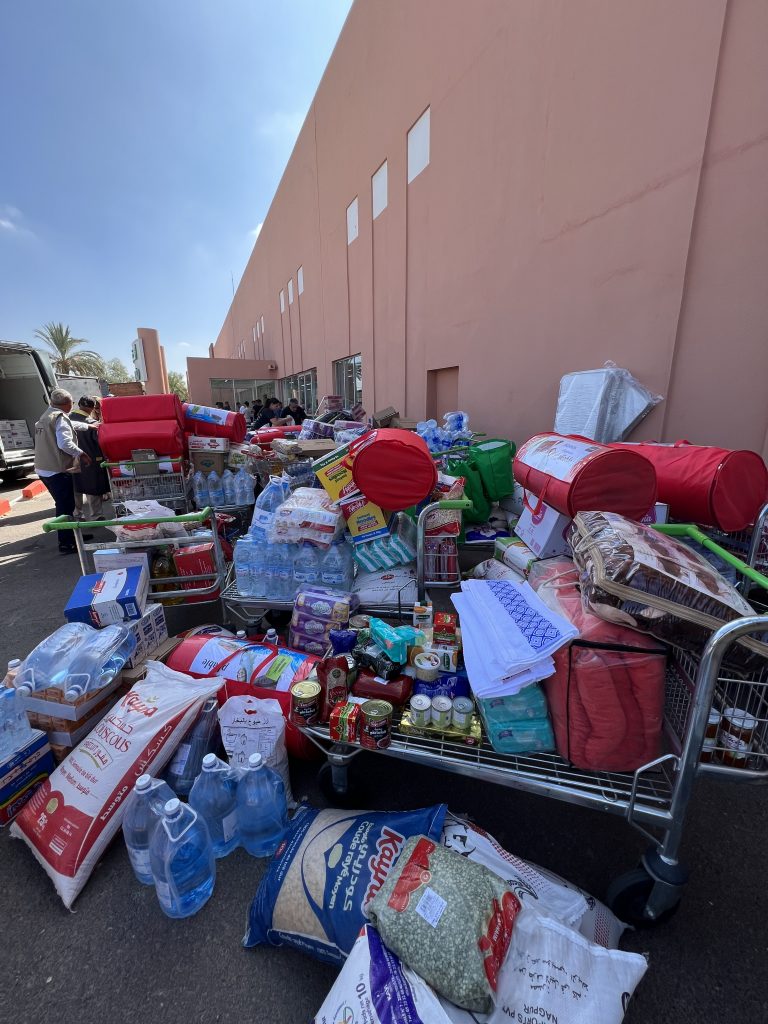
By being here firsthand we are able to dispel fact from fiction. From watching news accounts, one would have the impression that the entire country of Morocco had suffered extreme damage from this earthquake. In reality, the earthquake affected a small part of a large country. The epicenter was not far from Marrakesh, and in the streets, you can see that there are cracks and crumbling of various buildings, mainly in the older sections. However, virtually all of the hotels in Marrakesh itself sustained very little damage, due to the strong structural integrity of these buildings, built or fortified to withstand earthquakes.
However, the small, Atlas Mountains villages were not nearly as lucky. Many of these villages, which are mostly made of mud bricks, were completely destroyed, and many lives lost. The stories from our friends in the travel industry, who were in these villages at the time are heartbreaking. Several ancient historic buildings were also destroyed. Since some of these communities cannot be accessed by roads, this added to the difficulties of rescue efforts.
During our afternoon discussions, we learned that one village in the Atlas Mountains fared much better than the others. This village is very popular with tourists, and because of this, there is much more money flowing into the community, and they have been able to construct their buildings with steel and rebar, with the mud packed and compressed around the largely metal structures. So they were able to withstand the earthquake.
Other more impoverished villages were not so fortunate. Since these do not have the tourism dollars coming in, people are forced to build their homes with what they have on hand, which is largely wood and mud bricks. The result is that when the earthquake struck, many of these structures were completely leveled. Entire families died. These are the communities that need global assistance. The problem now is that after a few days of public interest, and some money raised, global attention may go to the next disaster elsewhere. These villages may once again be left to rebuild in unsustainable ways which will not prepare them for another earthquake.
The concern is that during a time when Morocco needs financial assistance more than ever, tourism will lessen, based on the erroneous belief that it is not safe to visit Morocco. According to conversations we had with other members of the travel community, tourists have already canceled their trips to Morocco. These trips often were not even going near the Atlas Mountains villages. For instance, Zoom Vacations has been conducting tours to Morocco for two decades, and the Atlas Mountains villages have never been part of our itineraries.
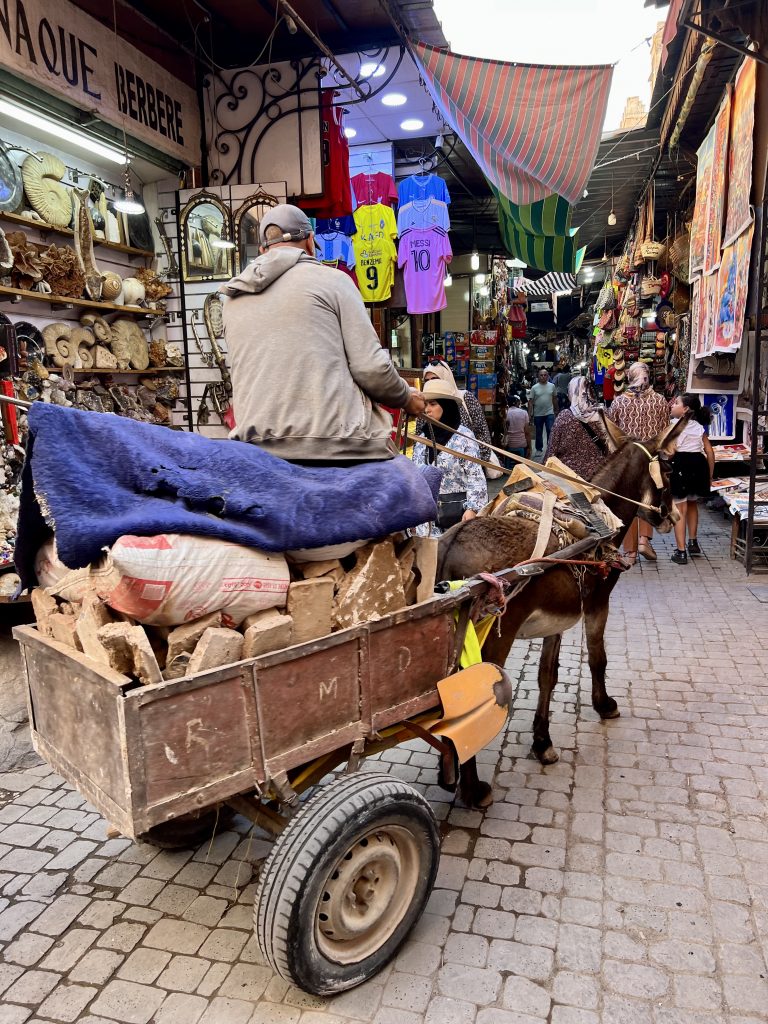
It is the equivalent of there being an earthquake in Los Angeles, and someone from another country deciding not to visit New York because they heard about this earthquake in the United States. Natural disasters like earthquakes can happen anywhere, at any time, and what is most important is to see how local communities and authorities deal with the crisis. What stands out the most is how incredibly the Moroccan people have handled this, and how well they have looked after the guests in their country. It is no surprise because looking after travelers is embedded in their culture, from the early days when travelers through deserts often depended on locals for their lives. This same love and care for travelers is as strong today as it ever was.
Tourism is part of the solution, not the problem. Internationally, we hear a lot of talk about the carbon footprint of tourism, and how tourists change the culture and even the beauty of a destination, casting tourism in a negative light.
Tourism, on the contrary, does so much more good than bad. I have seen how different cultures have actually been encouraged to maintain these beautiful traditions that attract tourism. With these visitors come tourism dollars, which not only support communities but can help create stronger transportation and housing structures that increase safety for residents.
Tourism does more for global communities than assisting with safety and housing infrastructure. As the modernity of the world proceeds at such a fast pace, it is tourism that often keeps cultural traditions from vanishing. Cultural heritage is often kept alive by visitors who wish to see and experience centuries-old traditions and culture. For instance, our tour to Morocco includes a visit to Fes, where we watch artisans create elaborate tile mosaics by hand, as they have done for centuries.
There is an even more powerful way that tourism can be beneficial: when a traveler falls in love with a destination and its people, they often feel more compelled to assist in times of crisis. Many of our Zoom Vacations travelers who have visited Morocco with us and have fallen in love with the country have already donated funds to help rebuild the communities hardest hit by the earthquake.
Morocco is a destination worth visiting more than once. In the future, our returning Zoom Vacations travelers may have the opportunity to visit communities that they have helped to rebuild.
Zoom Vacations is in the process of amassing funds to “adopt” a new, earthquake-sound home for a family in one of the hardest-hit villages. For information on how you can help, please email info@zoomvacations.com, or call 1.773.772.9666. Together we can change the world.
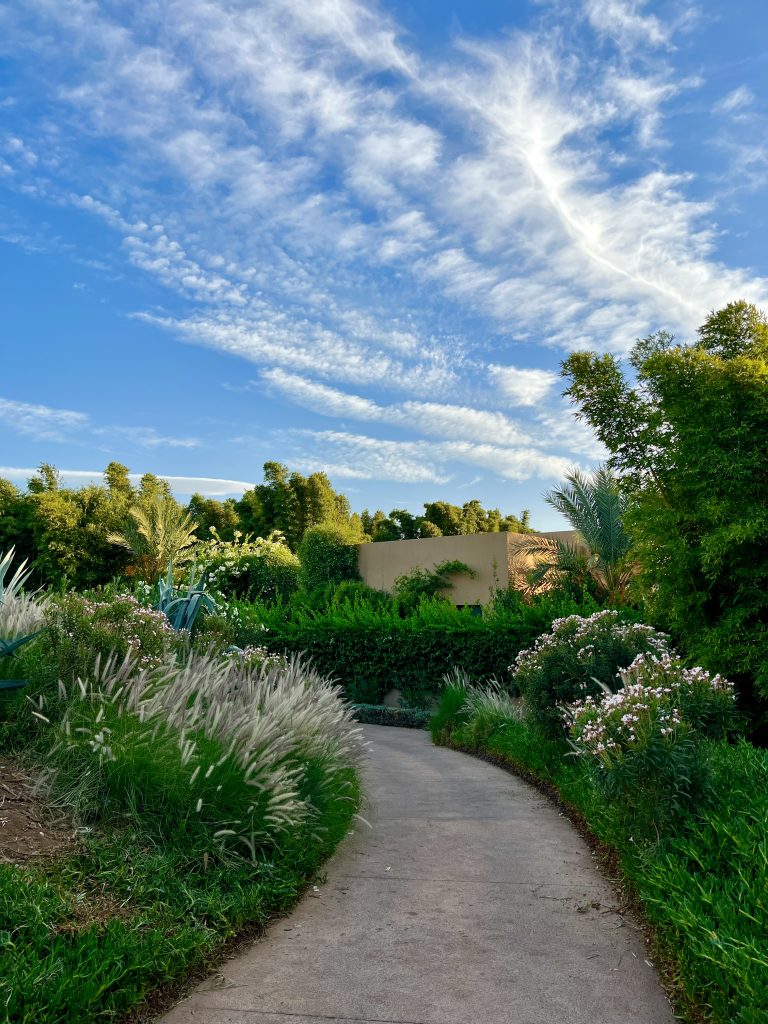


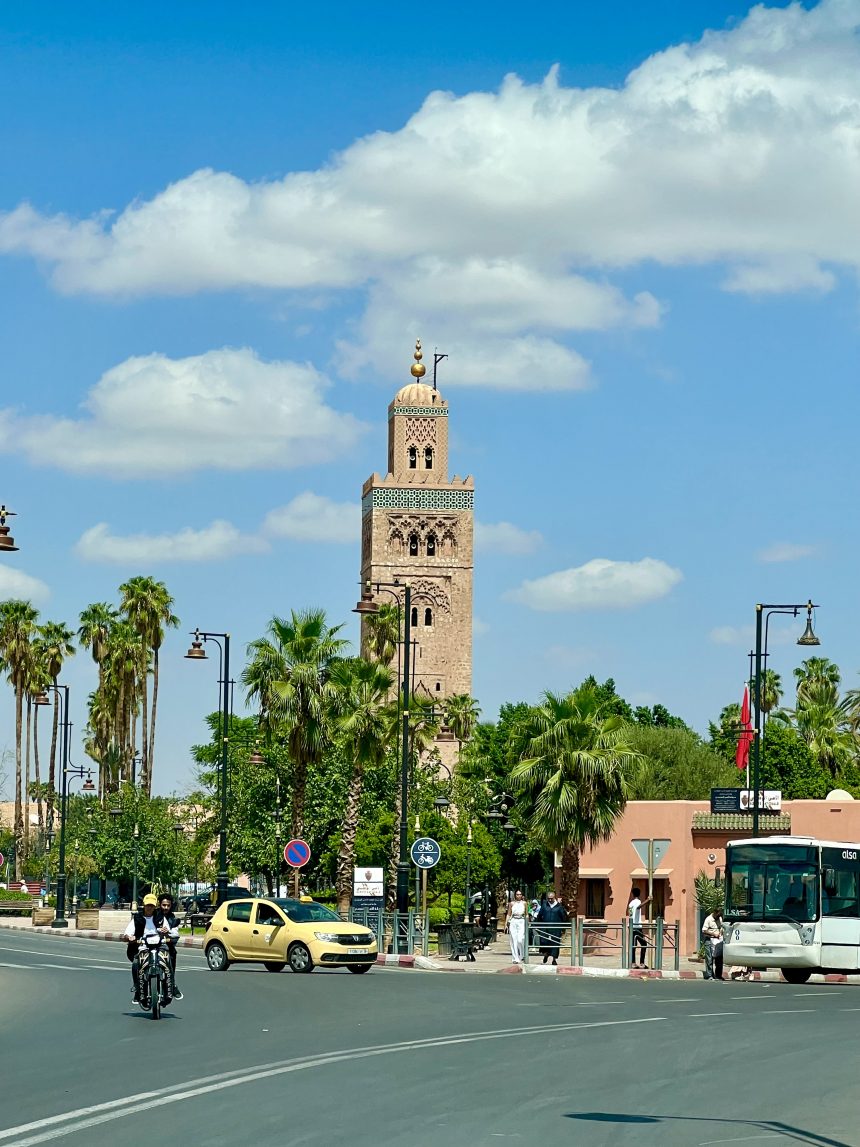
Leave a Reply